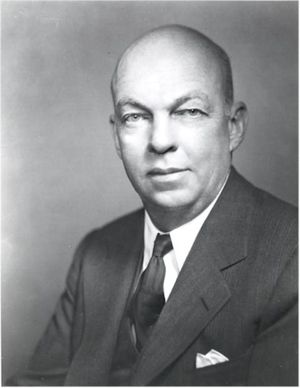Armstrong Receives FM Patents: Difference between revisions
From ETHW
(New page: '''This article is a stub. Please help expand the article by using the edit tab.''' thumb|center|Edwin H. Armstrong In 1928 [[Edwin H. Armstrong|Edwin H....) |
No edit summary |
||
| Line 1: | Line 1: | ||
'''This article is a stub. Please help expand the article by using the edit tab.''' [[Image:Edwin Armstrong 0251.jpg|thumb|center|Edwin H. Armstrong]] In 1928 [[Edwin H. Armstrong|Edwin H. Armstrong]] turned to frequency modulation (FM) to solve the problem of static, finding it necessary to use a much broader bandwidth than AM stations. In 1933 Armstrong obtained four patents for his FM techniques. [[RCA (Radio Corporation of America)|RCA]] showed no interest and [[FM Radio|FM radio]] developed slowly until the 1950s. | '''This article is a stub. Please help expand the article by using the edit tab.''' [[Image:Edwin Armstrong 0251.jpg|thumb|center|Edwin H. Armstrong]] In 1928 [[Edwin H. Armstrong|Edwin H. Armstrong]] turned to frequency modulation (FM) to solve the problem of static, finding it necessary to use a much broader bandwidth than AM stations. In 1933 Armstrong obtained four patents for his FM techniques. [[RCA (Radio Corporation of America)|RCA]] showed no interest and [[FM Radio|FM radio]] developed slowly until the 1950s. | ||
'''See also:''' [[Radio|Radio]] | '''See also:''' [[Radio|Radio]] | ||
[[Category:Communications]] [[Category:Radio_communication]] [[Category:Radio_broadcasting]] | |||
Revision as of 21:01, 16 December 2009
This article is a stub. Please help expand the article by using the edit tab.
In 1928 Edwin H. Armstrong turned to frequency modulation (FM) to solve the problem of static, finding it necessary to use a much broader bandwidth than AM stations. In 1933 Armstrong obtained four patents for his FM techniques. RCA showed no interest and FM radio developed slowly until the 1950s.
See also: Radio
